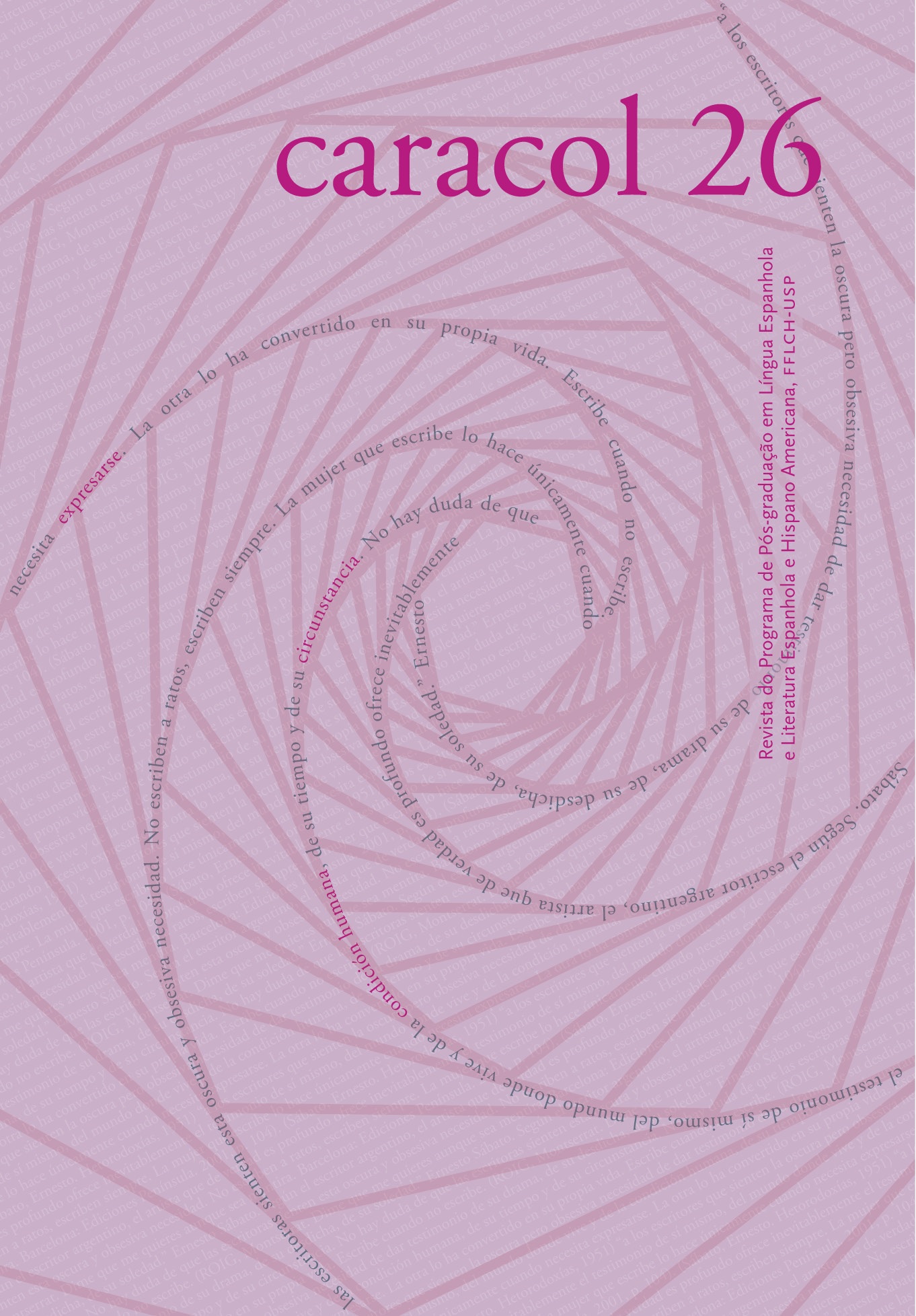Eloísa Cartonera: the future of sudaca border literature, 20 years later
DOI:
https://doi.org/10.11606/issn.2317-9651.i26p71-103Keywords:
Sudaca border literature, Latin-American Literature, Queer, Queer language, Avant-GardeAbstract
Based on the analysis of the relationship between literature and neoliberal crisis, this paper presents a snapshot of the foundation of the Eloísa Cartonera publishing house as an instance of configuration of a type of productive vanguard and a program of future literature, later put into practice by the network of cartonera publishers around the world.
Downloads
References
Anónimo. Fer. Buenos Aires: Eloísa Cartonera, 2003.
Eloísa Cartonera. No hay cuchillo sin rosas. Historia de una editorial latinoamericana y antología de jóvenes autores. Buenos Aires/Stuttgart: Eloísa Cartonera/Akademie Schloss Solitude, 2007.
Bell, Lucy; O’Hare, Patrick. “Latin American politics underground: Networks, rhizomes and resistance in cartonera publishing”. International Journal of Cultural Studies, 23, 1, 2020, 20-41.
Bilbija, Ksenija. “Borrón y cuento nuevo”. 2020. Disponible en: <https://nuso.org/articulo/borron-y-cuento-nuevo-las-editoriales-cartoneras-latinoamericanas/>.
Bilbija, Ksenija; Celis Carvajal, P. (eds). Akademia Cartonera. Un ABC de las editoriales cartoneras en América Latina. Madison: Parallel Press, 2009.
Cucurto, Washington. “El cuento por su autor”, Página 12, 22/01/2013. Disponible en:<https://www.pagina12.com.ar/diario/verano12/subnotas/212372-62090-2013-01-22.html>.
Cucurto, Washington. Néstor vive. Buenos Aires: Eloísa Cartonera, 2016. Disponible en: <https://www.pagina12.com.ar/diario/verano12/23-212372-2013-01-22.html>.
Friera, Silvina. “El personaje hace cosas que Santiago Vega nunca haría”. Página 12, 5/01/2007. Disponible en: <https://www.pagina12.com.ar/diario/suplementos/espectaculos/4-4988-2007-01-05.html>.
Fernández Galeano, Javier y Queiroz, Juan (2021). Agosto de 1971. Nace el Frente de Liberación Homosexual de Argentina. Moléculas Malucas, agosto de 2021. Disponible en: <https://www.moleculasmalucas.com/post/agosto-de-1971>.
Gago, Verónica. La razón neoliberal. Economías barrocas y pragmática popular. Buenos Aires: Tinta Limón, 2014.
Ludmer, Josefina. Aquí América latina: Una especulación. Buenos. Aires: Eterna Cadencia Editora, 2010.
López Seoane, M; Palmeiro, Cecilia. “Las lenguas de las locas”. El lugar sin límites, 3, 05, 2021, 186 – 192. Disponible en:<https://revistas.untref.edu.ar/index.php/ellugar/article/view/1034/841>.
Ludmer, Josefina. “Las literaturas posautónomas”, Ciberletras, Lehman College, 2008. Disponible en:<https://www.lehman.cuny.edu/ciberletras/v17/ludmer.htm>.
Palmeiro, Cecilia. Desbunde e Felicidad. Da cartonera a Perlongher. Rio de Janeiro: EDUERJ, 2021.
Perlongher, Néstor. Prosa plebeya. Buenos Aires: Colihue, 1997.
Perlongher, Néstor. Evita vive. Buenos Aires: Eloísa Cartonera, 2003.
Perlongher, Néstor. Papeles insumisos. Buenos Aires: Santiago Arcos, 2004.
Perlongher, Néstor. Correspondencia. (Cecilia Palmeiro, ed). Buenos Aires: Mansalva, 2016.
Piglia, Ricardo. Las tres vanguardias. Saer, Puig, Walsh. Buenos Aires: Eterna Cadencia, 2016.
Rosetti, Dalia. Durazno reverdeciente. Buenos Aires: Eloísa Cartonera, 2003.
Downloads
Published
Issue
Section
License
Copyright (c) 2023 Cecilia Palmeiro

This work is licensed under a Creative Commons Attribution 4.0 International License.
Authors who publish in this journal agree to the following terms:
- Authors retain copyright and grant the journal the right of first publication, with the work simultaneously licensed under a Creative Commons Attribution License, which permits the dissemination of the work with recognition of authorship and initial publication in this journal.
- Authors are allowed to enter into additional contracts separately for non-exclusive use of the version of the work published in this journal (such as publication in an institutional repository or as a book chapter), with recognition of authorship and initial publication in this journal.
- Authors are allowed and encouraged to publish and distribute their work online (e.g., in institutional repositories or on their personal page) at any point before or during the editorial process, as this can generate productive changes, as well as increasing the impact and citation of the published work (see The effect of open access…).




